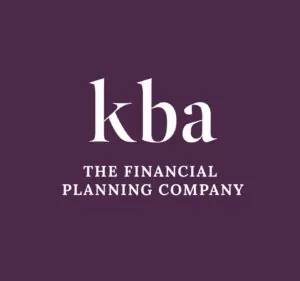As we approach the end of February, many of us will look forward to welcoming some spring sunshine. But as the winter chill lifts, many pensioners will continue to feel the squeeze from the rising costs of living.
With inflation already at 5.4% and expected to rise as high as 6% during the next few months, while the weather may show signs of improving, the financial forecast isn’t so rosy.
And the State Pension increase in April isn’t likely to keep pace with inflation.
Read on to find out what you can expect from the State Pension and what you can do to protect your wealth and income if the cost of living is pinching.
When and why the government suspended the triple lock
The triple lock applies to the State Pension and is designed to ensure pension payments keep pace with living costs.
In normal times, the triple lock ensures that the State Pension will rise in line with the highest of these three measurements:
- 2.5%
- Average earnings growth year-on-year for the May to July period
- Inflation (using the Consumer Price Index measure) in the year to September.
Because the pandemic had caused an artificial boost in wages, the triple lock could have prompted an 8% rise in the State Pension in 2022.
So, in September 2021, the government suspended the triple lock and announced that, in April 2022, the State Pension would increase by just 3.1%.
This means that in April 2022:
- Basic State Pension will increase from £137.60 to £141.85 a week
- Full State Pension will increase from £179.60 to £185.15 a week.
In normal times, these pension increases wouldn’t seem too bad. But with the spiralling costs of inflation, for many pensioners, life could get tough.
And experts are expecting further price rises. Energy prices, in particular, are predicted to increase significantly in the spring. Some analysts fear that inflation could rise above 7% in April. The biggest reason this is likely to become a reality is that the current price cap on variable energy is due to end and this will cause costs to jump dramatically.
7 ways you can beat inflation
If you’re nearing retirement or you rely on the State Pension for your income, there are a few things you can consider to help improve your financial situation.
1. Protect your savings
In times of high inflation, your cash will lose real-terms value, as interest rates fail to compete with the rising costs of living. This means that, where possible, you should consider investing extra cash in stocks and shares.
Investing wisely can give your money the opportunity to beat inflation and grow in value. Stock market investments come with some risk, but history shows that, over the long term, equity investments tend to outperform cash and produce an above-inflation return.
If you decide to invest some of your cash savings, be sure to maintain enough to cover costs in an emergency. Ideally, this should be enough to cover between three and six months of normal monthly expenditure.
Having ready cash on hand can help if you suddenly have to pay unexpected medical expenses, replace a broken washing machine, or your car needs an expensive fix.
2. Find a “safe haven” for your cash
Some people turn to “safe havens” to protect their money in times of inflation. “Safe havens” are assets you’d expect to remain popular over decades because supply is limited. “Safe havens” you could consider would be things like classic cars, works of art, or commodities such as gold.
3. Review your budget
If you haven’t looked at your incomings and outgoings recently, revisit your household budget and take some time to make sure you know where your money is going every month.
You may find you can trim some costs that you had forgotten you were paying out each month. Be ruthless in reviewing your bills and direct debits.
Did you subscribe to any TV streaming services during lockdown that you no longer watch? Or is there a monthly magazine subscription you’ve been paying for but rarely read when it drops through your letterbox?
This is the perfect time for a financial declutter, so cancel anything that no longer delivers value.
4. Shop around for better deals
Spend some time making sure you’re getting the best deal. You could make substantial savings by swapping your phone company or reviewing your home insurance.
5. Find out whether you’re eligible for pension credit
If money is tight, it’s worth checking if you’re eligible for pension credit. You can claim pension credit even if you have other income, savings, or own your home. Pension credit can also go towards helping you meet housing costs such as ground rent or service charges.
6. Consolidate any credit card debts
If you’ve got any credit card debt that you’re struggling to repay, consider consolidating the debt. You may be able to find a suitable 0% credit card transfer deal, allowing you to transfer all your debt to one new card and save on interest payments for a period.
If you decide to consolidate, be sure you do the sums so you’ll end up paying less on interest rates, fees, and charges.
7. Talk to a financial planner
For the best chance of protecting your wealth and finances against inflation, talk to a financial planner. They will have a deep understanding of the problems you face and the different ways you could help mitigate the issues.
Get in touch
If you’re concerned about the effects of inflation and want help to protect your income and wealth, get in touch. Email us at contactme@kbafinancial.com or call us on 01942 889 883.
Please note
The value of your investments (and any income from them) can go down as well as up and you may not get back the full amount you invested. Past performance is not a reliable indicator of future performance. Investments should be considered over the longer term and should fit in with your overall attitude to risk and financial circumstances.
HM Revenue and Customs practice and the law relating to taxation are complex and subject to individual circumstances and changes which cannot be foreseen.



